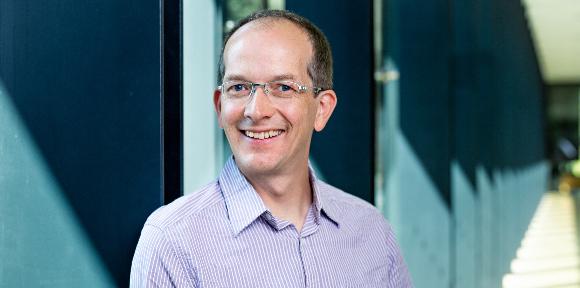
Dr François Nédélec, Research Group Leader at the Sainsbury Laboratory, is part of an European research consortium awarded a prestigious 11 million euro ERC Synergy Grant to to study one of the most fundamental processes in life – cell division.
SLCU's François Nédélec has joined Andrea Musacchio, from the Max Planck Institute of Molecular Physiology in Dortmund, and Thomas Surrey, from the Centre for Genomic Regulation in Barcelona, to study one of the most fundamental processes in life – cell division. Their project has been awarded a prestigious ERC Synergy Grant, valued at 11 million Euros, to reconstitute cell division in vitro and in silico.
When a cell divides, it must go through a radical and dramatic transformation before it splits. Chromosomes are duplicated, rearranged and aligned in a very particular manner before they are pulled into the two daughter cells. Despite this mechanism being at the heart of biology, it is still poorly understood. The collaborators have set the extraordinarily ambitious goal of unravelling this interplay by re-engineering it in vitro and by modelling it in silico.
Pooling their resources, they hope to reconstitute and model cell division on an entirely new level. Their project has been awarded one of the rare Synergy Grants from the European Research Council. The partners in the consortium have already gained groundbreaking insight into the understanding of cell division in recent years, and their collaboration will uncover new fundamental insights of living system.
Dr Nédélec says the collaboration's goal is to generate a quantitative understanding, grounded on the first principles of physics and chemistry, of how the cell cycle and the mitotic spindle achieve chromosome segregation.
"We have been modelling cell division for more than 20 years, studying molecular machines like the mitotic spindle and for a physicist, this is a wonderful playground," says Dr Nédélec.
"Just like a regular engine, the mitotic spindle consumes energy to perform mechanical work, but it is built on totally different principles. As a theoretician, I need collaborators who are experts in the biology and working together will give us deeper insights into the complexity of cell division. With this iconic example, we plan to illustrate how inanimate biochemical components are turned into living matter."
